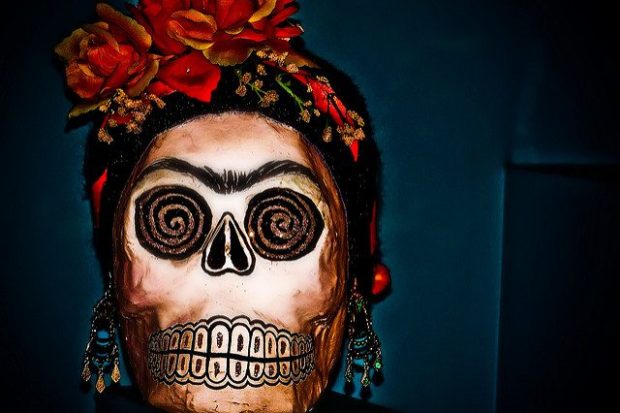
By Paula Ayala
An identity beyond regional or sociopolitical influence is in fact a reality accomplishable. However, the reality is that in the state in which we reside there exist efforts to strip away one’s identity whether it is cultural, philosophical, physical or metaphysical. This is what is considered cultural homogenization, which is inherent with cultural globalization and the means in reducing cultural diversity through the popularization of cultural symbols, for example, corporate logos, flags and branding to monopolize. This, in turn, imposes a global market economy on any and all communities whether they are the Ch/ Xicana/o community, the Hmong community or any community facing the threat of transformation or absorption of the dominant culture, in this case, mass mainstream culture in the United States.
The proclamation of a cultural identity amid a game of tug-o-war to assimilate is one that is necessary. Assimilation, being the process in which a group or community gradually, or, in most cases, confusedly adapts to the customs and attitudes of the prevailing culture and customs. The question is, if the culture of one’s ancestral origins confronts stigmatization or discrimination from Westernized cultures, is it not justified and logical to proclaim one’s originating culture without shame or doubt? In other words, if a society or a community is suffering displacement of family members, slave labor or wages, and loss of the local market economy and cultural change due to the imposition of transnational corporations, then the bind that society has is the identity through culture or an understanding of suffering.
The goal of the dominant culture in which we live is to retain its power partly through control of institutions, the legal system and the criminalizing practices that conflict with their own. This is where the reclamation of cultural identity becomes key. Tactics vary from the treatment of people of color in schools, as well as the LGBTQ community, or how media encourages people to perceive one’s own culture or others in stereotypical and negative ways. This is where it is the philosophical and ethical responsibility for the mindful being to question these tactics and confront and combat the status quo imposed on one. Global movements extending from culture, labor rights and fairness to sexuality have expressed this same resistance to invasion of personal and collective rights, discrimination and free will, and examining and taking back one’s identity is vital in the defense of these invasions.
In the process of this confrontation to the stereotypes imposed on one, one finds that the greatest amount of healing to this cultural/ economical/ecological/philosophical imposition is the recovery of cultural identity. In an article written by Doug Herman, “A New Way for Stewardship of Mother Earth: Indigeneity,” he clearly puts forth the example that “cultures everywhere have sustained themselves by developing systematic knowledge through planting, hunting, weather & climate, environmental conditions, medicine & healthcare and navigation & engineering.”
On the other hand, what many early academic scholars taught and made tragic assumptions about cultures around the world is the opposite. The “educated” Western philosophers were having debates as to indigenous and tribal people’s existence of a soul. What early 19th century theorists taught was that the highest levels of mankind were held on one standard and that standard being that all progress led toward something that resembled industrial Europe. This theory classified all other cultures not meeting the standard or status quo as savage or barbaric people. If we look at history and current events closely, we can clearly see that this is relatively not too far from history and this type of thinking exists today in mainstream culture and in institutionalized settings. For example, one can look at our prison systems and criminalization practices to get a good idea of this.
So what does this mean to the everyday Ch/Xicana/o or Hmong or anyone oppressed by a system that with great effort denies and vilifies identity by imposing cultural imperialism? It means reach for what you already have and what the masses are threatening to get rid of in you. There has always existed education, philosophy, art and music in all cultures. The rapidness in which this threat exists, to deplete humans of free thinking or diversity in thought or action is moving quickly, but what we are seeing on a global scale is the rising of consciousness met with action to combat this threat; culture and reaffirming one’s identity are many forms people are using to combat this threat.
As long as colonization has occurred, there has been resistance to maintain an identity, as well as the resources looked after by the group. So is it not our responsibility as Ch/Xicana/o to maintain this action in resistance even if we are on the other side of the “border”? Is it not even more of a responsibility because we are in the belly of the beast to combat the imposition of thought and teachings from a society already trying to keep a sistah down?
*****
Paula Ayala is an educator/artist who focuses her real time in the arts, as well as community outreach locally and internationally. She aspires to continue making the connection with the outside world and its movements with her hometown through music, art, dance, intellect and soul.
